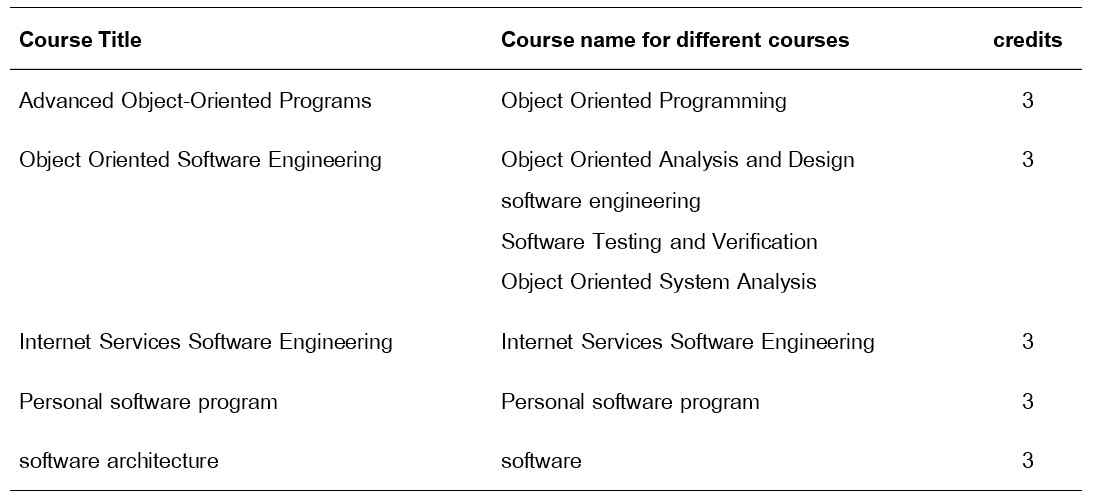Talent Cultivation in Software Service Supply Chain - Taking India as an Example
Main Article Content
บทคัดย่อ
The purpose of this study is to explore talent development in the software service supply chain, taking India as an example for discussion. This study was conducted concerning India has reputation on its excellent achievements in the field of software services. The main questions of this study mainly discuss the following: 1. What are the contents of the software service supply chain? 2. What capabilities should software service talents have? 3. What are the complete software service courses? And 4. What are the characteristics and advantages of India in cultivating software service talents? This research adopts the method of expert interview to carry out the research of this paper. During the research period, a total of ten people including five industry professionals and five university teachers were interviewed. The understanding of India is interpreted through the collection of public information and the conclusions of expert interviews. The results of this study show that the complete software service talent supply chain includes online personnel and product service personnel. Depending on the difficulty of the program, the service personnel need to have different levels of program service capabilities. This research also designs the basic courses required for cultivating software service talents at this stage. As for why India can occupy a place in the software service industry, it should be attributed to the way of education in India and the unique thinking habits of Indians.
Article Details

อนุญาตภายใต้เงื่อนไข Creative Commons Attribution-NonCommercial-NoDerivatives 4.0 International License.
บทความนี้ได้รับการเผยแพร่ภายใต้สัญญาอนุญาต Creative Commons Attribution-NonCommercial-NoDerivatives 4.0 International (CC BY-NC-ND 4.0) ซึ่งอนุญาตให้ผู้อื่นสามารถแชร์บทความได้โดยให้เครดิตผู้เขียนและห้ามนำไปใช้เพื่อการค้าหรือดัดแปลง หากต้องการใช้งานซ้ำในลักษณะอื่น ๆ หรือการเผยแพร่ซ้ำ จำเป็นต้องได้รับอนุญาตจากวารสารเอกสารอ้างอิง
Arora, A., & Bagde, S. K. (2010). Human capital and the Indian software industry. Working Paper No. 16167 (Cambridge, MA, National Bureau of Economic Research).
Fu, Q. (2013). Management Information System. Huazhong University of Science and Technology Press.
Guan, C. H. (2001). Create one million software talents — Indian software education Commonwealth Magazine retrieved on 26 December 2022, from https://www.cw.com.tw/article/5106949
Humphrey, J. 2004. Upgrading in global value chains, Working Paper No. 28 (Geneva, Policy Integration Department, World Commission on the Social Dimension of Globalization, ILO).
Kaplinsky, R. (2000). Spreading the gains from globalisation: What can be learned from value chain analysis?. in Journal of Development Studies, 37(2), pp. 117–146.
Kogut, B. (1985). Designing Global Strategies: Comparative and Competitive Value-Added Chains. Sloan Management Review, 26, 15. https://doi.org/10.1002/tie.5060280105
Mani, S. (2013). Changing leadership in computer and information services, emergence of India as the current world leader in computer and information services, Work
Ministry of Education (MOE). (2022). Smart Innovation Cross-domain Talent Cultivation Program Cultural Creativity and Multimedia Center> 2022 XR Battle (CGW) Competition, retrieved on 26 December 2022, from https://www.csie.ncku.edu.tw/en/news/11853 https://sites.google.com/gapps.ntnu.edu.tw/cgw2022/xr-battle?authuser=0&fbclid=IwAR2X66V_A5ewZnDKdadYG_xSF50XRxWsIpZUZOZDqpCs9oxeWDaUUouUlT0
Pandey, A., Aggarwal, A., Devane, R., & Kuznetsov, Y. (2004). India’s transformation to knowledge-based economy – Evolving role of the Indian diaspora (Gurgaon, Evalueserve). Available at: http://info. worldbank.org/etools/docs/library/152386/abhishek.pdf [accessed 21 Oct. 2013].
Patibandla, M., & Petersen, B. (2002). Role of transnational corporations in the evolution of a hi-tech industry: The case of India’s software industry. in World Development, 30(9), pp. 1561–1577.
Porter, M. E. (1980). Competitive Strategy, Free Press, New York, 1980. The book was voted the ninth most influential management book of the 20th century in a poll of the Fellows of the Academy of Management.
Porter, M. E., & Kramer, M. R. (2011). Creating Shared Value. Harvard Business Review. Jan/Feb 2011. 89(1/2), pp. 62–77
Saraswati, J. (2012). Dot.compradors: Power and policy in the development of the Indian software industry. London. Pluto Press
Tilak, J. B. G. (2013). Higher education in the BRIC member-countries: Comparative patterns and policies. Economic and Political Weekly, 48(14), pp. 41–47.
Tsai, W. (2021). The value chain. TechTarget Informatization Reference Date 2015-08-18 retrieved 26 December 2022, on https://www.techtarget.com/searchcio/definition/value-chain
Vijayabaskar, M., & Babu, M. S. (2022). Building capabilities in the software service industry in India: Skill formation and learning of domestic enterprises in value chains. Transforming economies Chapter 8) ILO research project on capabilities, productive transformation and development coordinated by Irmgard Nübler. retrieved on 26 December 2022 from https://www.ilo.org/wcmsp5/groups/public/dgreports/ inst/documents/publication/wcms_315673.pdf
Zhang, P., & Feng, G. (2018). Application of fuzzy comprehensive evaluation to evaluate the effect of water flooding development. J Petrol Explor Prod Technol 8, 1455–1463 (2018). https://doi.org/10.1007/s13202-018-0430-y


